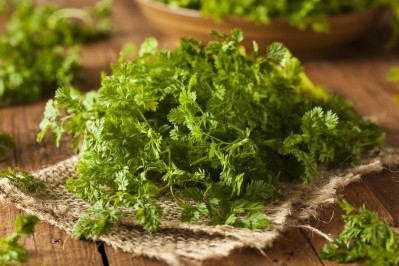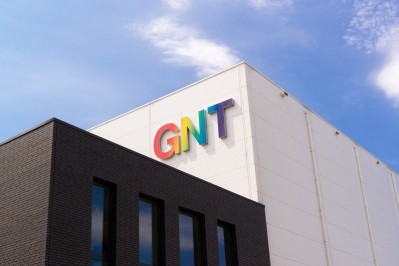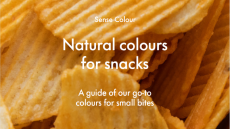‘There is a real opportunity for growth’: ScotBio plans rapid scale-up for natural blue and green colourings

“We firmly believe there is real opportunity for growth as there is a short supply of natural blue and green ingredients in an expanding market,” chief operating officer Polly Van Alstyne told FoodNavigator.
Globally, consumer sentiment is fuelling the move away from artificial ingredients and toward natural alternatives.
ScotBio has developed a patent-protected method of enhancing the amount of phycocyanin, the blue pigment, produced in spirulina. The company uses a unique vessel-based process to grow its spirulina. This involves the use of special red lighting to trigger the organisms to produce more of the blue colour – by as much as five times conventionally grown and harvested spirulina.
ScotBio said its ingredients will meet worldwide demand for ‘clean labels’ and products free of artificial colours by providing FMCG’s with traceable, natural blue and green colourants made from spirulina.
Consistent quality and secure supply
Most phycocyanin producers use an open pond system to grow because indoor-grown spirulina is typically cost prohibitive. But outdoor cultivation is seasonal, meaning access to year-round fresh supplies are limited, while environmental contamination represents a risk factor for this production method.
ScotBio is able to leverage its tech to address this challenge and bring down the cost of growing indoors.
Over the past four months, the company has has successfully tested its method for producing its natural food colourant in a 50,000-litre production tank. Capacity will be scaled up further over the next year with the addition of ‘several’ more large-scale vessels.
“Currently, the new facility has 50,000 litres of growing capacity. Our expansion plans would see that capacity increase to 500,000 litres in the next 12 months. There are also future plans to scale further,” Van Alstyne detailed.
The global spirulina market size was $346m in 2018, and is projected to reach $779m by 2026, according to Allied Market Research. This represents a compound annual growth rate of 10.6% from 2019 to 2026.
Scale production is a core part of the Scottish start-up’s business plan, she revealed, because it will further drive down costs. “Operating at scale is definitely core to our plan. It benefits our own business but equally importantly it benefits our customers. We all benefit from the economies of scale,” Van Alstyne suggested.
According to the COO, ScotBio expects to leverage its IP-protected production system to deliver ‘a consistent and secure supply of product’. This, she explained, is something the market is seeking.
“A key USP is that our natural spirulina is vessel grown which provides year-round consistency of production and security of supply with the ability to have production facilities nearer to the end users. This allows for customers to have a supply of fresh biomass, rather than dried biomass, to work with which we know the growing market wants.”
The new facility complements BioScot’s existing R&D facility at bio-tech incubator BioCity, near Glasgow.
“Product development and R&D is continuing apace at our headquarters at BioCity and we are speaking with food manufacturers across the world who are keen to know more about the production of our phycocyanin and other functional food ingredients, and our plans for scaling up production levels,” Van Alstyne commented.
“We are already in the process of signing distribution agreements with suppliers and expect to start bringing ‘ScotBio Blue’ to market in the early part of 2020.”
The ambitious company also has plans to open facilities in additional markets to bring production as close as possible to its customers. The company revealed it is also looking at a number of additional sites in Europe, the US and the Far East as part of its longer term growth plans.
“Exact timings and locations will be driven by the market, but we have had positive conversations with potential customers that give us confidence that that area of expansion could happen as early as 2021,” Van Alstyle said.





















